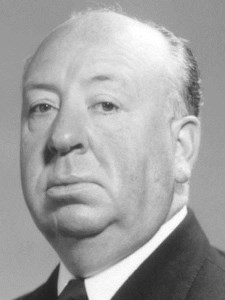 I’ve watched two Alfred Hitchcock films this last week: The Man Who Knew Too Much (1956) and Foreign Correspondent (1940). In the past, I’ve said that Hitchcock was a great genre filmmaker. I think that is a case where my friends are right: I do overuse superlatives. Watching both of these films was depressing.
I’ve watched two Alfred Hitchcock films this last week: The Man Who Knew Too Much (1956) and Foreign Correspondent (1940). In the past, I’ve said that Hitchcock was a great genre filmmaker. I think that is a case where my friends are right: I do overuse superlatives. Watching both of these films was depressing.
Foreign Correspondent is the better of the two. It can be forgiven its propagandistic character. But in terms of pure cinema, it’s boring. D W Griffith was doing far more interesting work 25 years earlier. And that’s to say nothing of Sergei Eisenstein. It’s a by-the-numbers directorial job. But overall, the film reminded me of nothing so much as what Howard Hawks would produce if he lacked the talent and care. And as much as I love Hawks’ work, film critics (rightly) don’t pick over his films for deep meanings.
The Man Who Knew Too Much is typical of Alfred Hitchcock in the 1950s and 1960s. I think it is fine to use rear projection. But I can’t think of a major filmmaker who used it so obsessively and so badly. Every time it is used, it pulls me out of the story. And that’s especially true here where much of the early second unit work from Morocco is gorgeous. But it doesn’t too much matter because the story itself is so anemic, it could almost be an episode of Leave It to Beaver.
Greatest Film Ever
But it was Foreign Correspondent that really got me thinking. It was made less than a year before Citizen Kane and the contrast could not be more stark. Whereas Correspondent told an utterly predictable story in a totally conventional way, Kane presented a modern tragedy if a revolutionary way.
But okay, Citizen Kane is the greatest movie ever blah, blah, blah. That’s always been a bit hard to stomach, but sure: Kane is a spectacular film. But where does this business of it being the “best” film come from? It’s a silly idea, so it should surprise no one that it comes from polling of film critics. It comes specifically from Sight & Sound magazine. Since 1952, they’ve been asking every ten years.
In 1952, Citizen Kane didn’t even make the list. The film was, of course, hugely influential among filmmakers. But critics had not yet been told that they should admire the film. It wasn’t until the 1962 poll that Kane showed up on the list at all — and at number one no less. It stayed there until the 2012, when it dropped to number two.
Alfred Hitchcock Becomes “Great”
What was the new greatest film ever made? Vertigo. That’s right: not only an Alfred Hitchcock film, but not even one of his better films. But I guess the critic community had to pick some Alfred Hitchcock film. And it couldn’t be an obvious one like Psycho. So why not Vertigo? It works as well as any other.
The interesting thing is that the critics who would now have us believe that Vertigo is the greatest film ever are only doing so because they’ve been taught to. Hitchcock didn’t even show up on the list until the 1982 poll, when Vertigo tied for 7th place with two vastly superior films: Michelangelo Antonioni’s L’Avventura and Welles’ The Magnificent Ambersons.
This turn toward thinking of Alfred Hitchcock as a great film director has everything to do with the fetish made of him by the French New Wave. And the modern critics just can’t get past that. They’ve all read Hitchcock/Truffaut. François Truffaut thought Hitchcock was great, so not only is Hitchcock great, but everything he touched is a masterpiece. It’s just sad. Of course, the same thing happened to Welles. But at least Welles was a brilliant and important filmmaker. The more important point is that it’s just not quite so cool anymore to obsess about him. Trust me: in 2032, Vertigo will not top the Sight & Sound list.
Where Are the Greats?
What’s absurd is that nowhere on the list is anything by Griffith (although Intolerance was number five in 1952). Eisenstein suddenly disappeared in 2012. That’s not to say that the 2012 list is a bad one. It’s a list that contains nine great films. And at the top of list is an odd, moderately entertaining film by Alfred Hitchcock. It shows what a joke film critics are.
- Vertigo
- Citizen Kane
- Tokyo Story
- Rules of the Game
- Sunrise
- 2001: A Space Odyssey
- The Searchers
- Man with a Movie Camera
- Passion of Joan of Arc
- 8½
For the record, I think The Searchers is an odd film to pick for John Ford. And there are lots of Fellini films I like more than 8½. For that matter, many of these films are odd selections. But they are all important films — all except for Vertigo. Alfred Hitchcock was not an important director.

 I hope they let me practice the clarinet.
I hope they let me practice the clarinet.